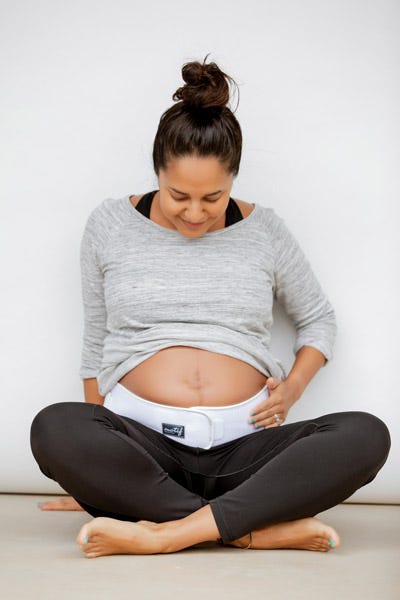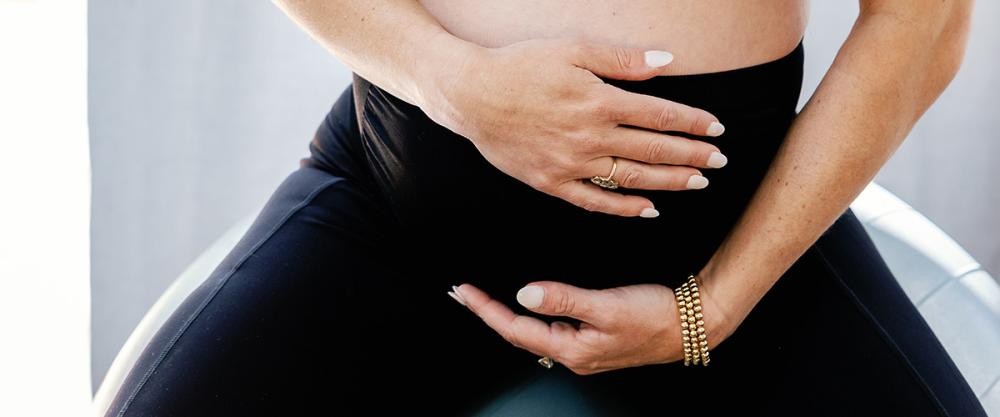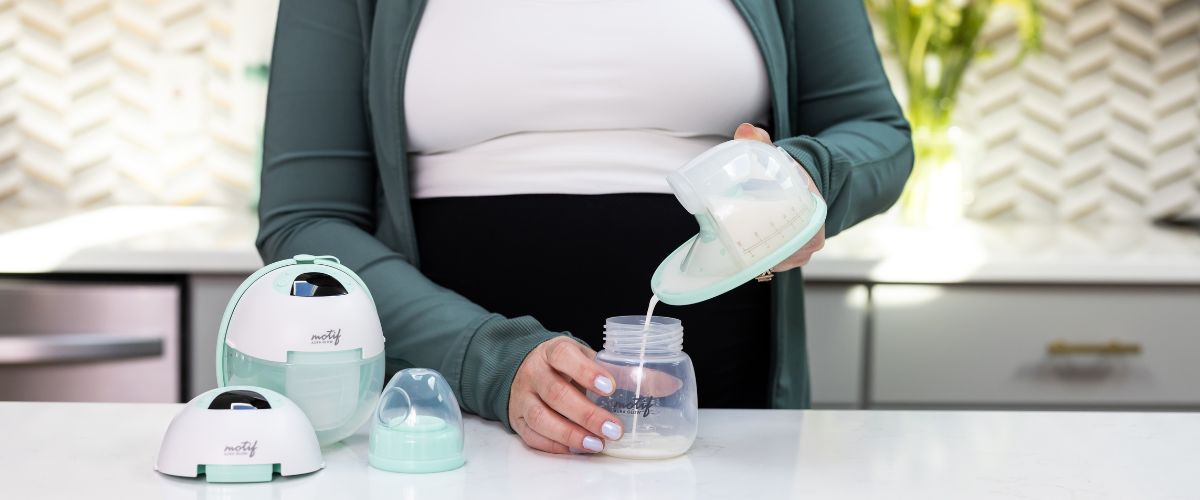Wondering if you should pick up a pregnancy test at the store? Are you feeling a little queasy or maybe you've already had a missed period? Most women suspect they're having a baby long before they get a positive pregnancy test, but if it's your first pregnancy or you've been on birth control and not planning to have a baby right now, you might be wondering what to look for.
Your Body Before Pregnancy
Before we get to the symptoms of pregnancy, let's talk about what's going on in your body before you get pregnant: A normal menstrual cycle is about 28 to 30 days long. The start of your menstrual period is marked by the first day of blood flow. This is day one of your menstrual cycle. Your bleeding will be the heaviest at the beginning of your period and end with light bleeding on the last day. Normal menstrual flow lasts for 3 to 7 days and speaking of periods, if you are planning to get pregnant, make sure you write down the first day of your last period. Your healthcare provider will put that day into a due date calculator to come up with your estimated due date!
The reason the first day of bleeding is considered the first day of your cycle is because this is when your body starts developing the egg that it will release at your next ovulation. Even while you're bleeding and for the next couple of weeks, your body will be developing several follicles into eggs. If you have a longer or shorter cycle, this "follicular phase" is when that variation happens. Some women experience a longer follicular phase, which leads to a longer cycle because once you ovulate, it is pretty consistently 11 to 13 days until you will start to bleed. Everyone has their own normal, but for each individual the length of the luteal phase (what comes after ovulation) only varies by about 24 hours.
Mid-cycle is when you will ovulate. Once an egg has been released from your ovary, it only stays alive for 12 to 24 hours and most pregnancies occur within 4 to 6 hours of ovulation, so it's a pretty short window of opportunity to get pregnant. If the egg is fertilized, you'll technically be pregnant, although it's going to take about 2 more weeks before your HCG (human chorionic gonadotropin) levels are high enough for you to have a positive home pregnancy test.


The fertilized egg will travel down your fallopian tube and implant into the lining of your uterus. Some women will experience implantation bleeding about 6 to 10 days after ovulation as a result of the fertilized egg establishing itself in the uterus. They might think they're getting their period early or if they know this can be one of the first signs of pregnancy, they might run out to get a pregnancy test! If you're one of these excited ones, don't be surprised if you still get a negative result for awhile. As your pregnancy progresses your hormone levels will continue to rise, eventually resulting in a positive test. And time of the day makes a difference! Taking a home pregnancy test first thing in the morning is more likely to give you a positive result sooner and a blood test will be even more accurate.
Symptoms of Early Pregnancy
So now you're pregnant. What should you expect next? A few common symptoms of early pregnancy are breast changes, tiredness, frequent urination, food aversions, and mood swings. While the early signs of pregnancy aren't the most pleasant, they're a reassuring sign that your body is creating all of the hormonal changes necessary to grow a healthy baby. Progesterone is one of the main stars of the hormonal changes of pregnancy. It starts to increase after ovulation and it stays elevated throughout pregnancy. If you're tracking your cycle, progesterone is the one to thank for the rise in your basal body temperature after ovulation. And if you keep tracking your BBT, you'll notice it remains elevated throughout pregnancy. This is a great way to have reassurance that your progesterone levels are right where they should be.
If you want to start tracking your basal body temperature, you'll need to get an oral thermometer that you can leave by your bed. When you wake in the morning, before you even get up to go to the bathroom, check your temperature. This is your basal body temperature and it will rise by about 0.36 degrees F after you ovulate--it's a great way to confirm ovulation during your cycles!
Morning Sickness
Although progesterone rises right after ovulation, the first sign of early pregnancy is often a queasy or nauseous feeling that we call morning sickness. While no one knows what causes it, we all agree that morning sickness isn't a fair name because the truth is this feeling can come at any time or even last all day long. Eating small meals throughout the day and keeping crackers or nuts by the bed to eat before you get up in the morning can help your stomach feel more settled. Some women also find that ginger, peppermint, our sour hard candies can help with first trimester nausea. In addition to this "all day sickness," the first trimester of pregnancy also has pregnant women struggling with constipation, bloating, breast tenderness, and an increased sense of smell. Avoid anything with strong scents--laundry detergents, candles, hair products can all trigger unpleasant reactions.
Second and Third Trimester
The second trimester and third trimester will continue to bring more and different symptoms with your changing pregnancy hormones. Many women experience food cravings and food aversions, headaches, increases in blood volume and sometimes blood pressure, heartburn, leg cramps and insomnia. And although none of that sounds fun, the good news is that there are things you can do to help improve your symptoms at all of the stages of pregnancy. A healthy, well-balanced diet can curb many food cravings, as most of them are caused by your body looking for a particular nutrient.
Drinking plenty of water (aim for half your body weight in ounces of water!) and regular exercise will help keep your blood pressure in a normal range throughout pregnancy and also help you avoid the miserable leg cramps that can come in the third trimester. Talk to your doctor or midwife about the specific discomforts you're experiencing to get the most up to date information that will help keep you feeling your best.








